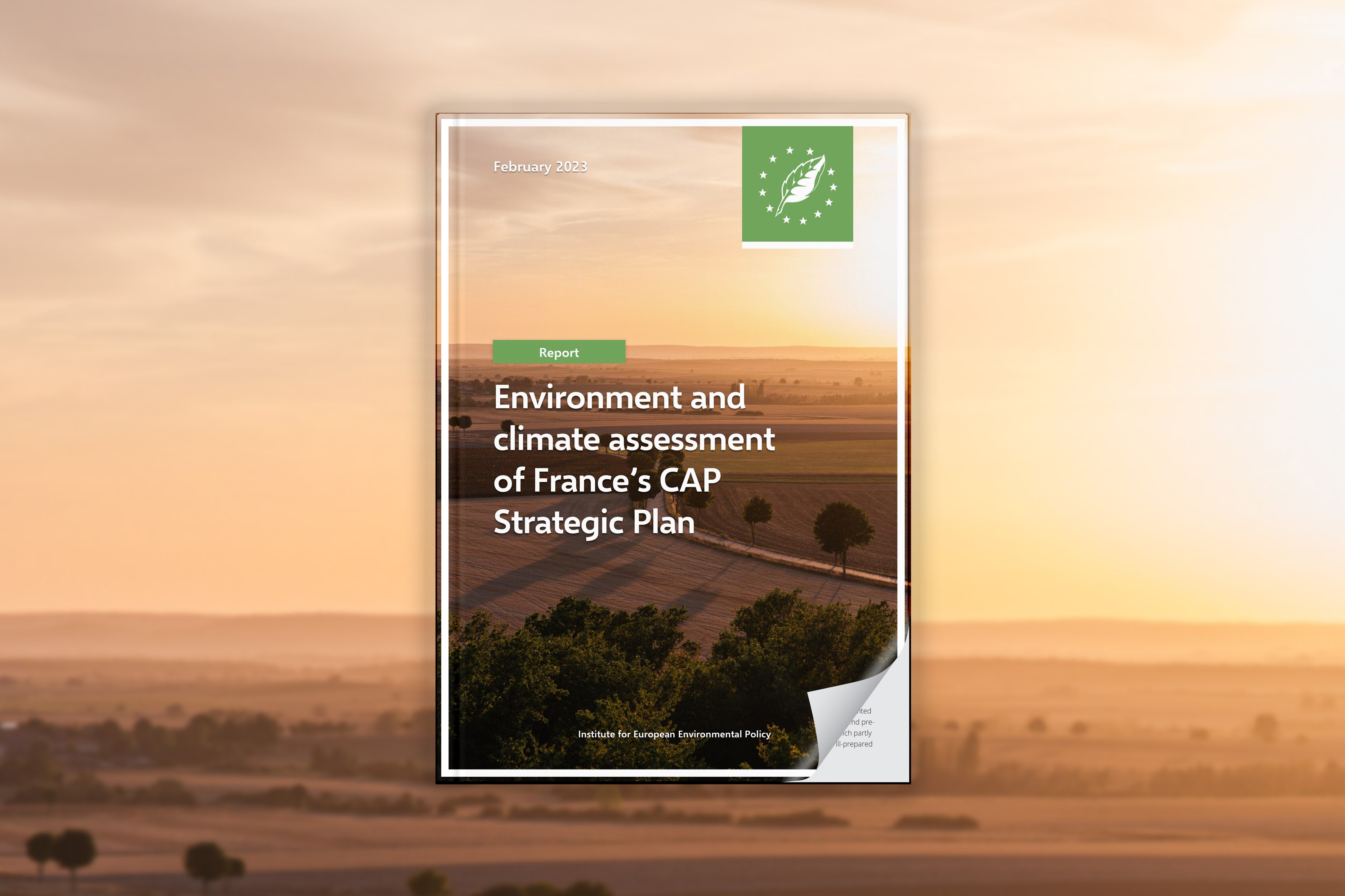AUTHORS: Estelle Midler, Juliette Pagnon
This report is part of a series of environmental and climate assessments of CAP Strategic Plans, in Member States with large agriculture sectors. It covers climate mitigation and adaptation, natural resources, and biodiversity protection, in this case for France.
The current European Union food system has considerable impacts on the climate and environment, being responsible for an estimated 30% of the continent’s GHG emissions. The agriculture sector also puts immense pressure on biodiversity as it is a significant contributor to soil degradation and reductions in water quality and availability. The ecological transition of agri-food systems is therefore necessary and urgent.
The EU Common Agricultural Policy (CAP), which supports agricultural production through different instruments (‘interventions’), is the main funding opportunity for the transition of the block’s agri-food systems. The latest reform of this policy has introduced a new structure (‘delivery model’), that came into force in Member States at the start of 2023. It requires them to develop a National Strategic Plan presenting: their needs for ten specific objectives, three of which are environment and climate related, the interventions they plan to implement to address these needs, and the budget allocated to these interventions. All CAP Plans were approved in 2022 by the European Commission.
This report is part of a series of assessments of CAP Strategic Plans, in Member States with large agriculture sectors and where the potential for addressing national and EU climate and environmental challenges is high. The assessments cover the Strategic Plans’ likely contribution to climate mitigation and adaptation, natural resources, and biodiversity protection, in this case for France.
The findings suggest that overall, the French Strategic Plan will not be sufficient to trigger the shift in farming systems and practices needed to respond to the scale and urgency of the climate and biodiversity crisis. France has on the whole not used the flexibility available to significantly improve requirements and funding for the environment and climate. The Plan contains some improvements compared to the previous CAP, such as the increase in funding for conversion to organic farming or the introduction of promising schemes in Pillar II, including innovative result-based payments. However, in general, these interventions have small budgets or target small areas, and may suffer from low uptake.
To improve the potential impact of CAP spending, the report proposes two sets of recommendations: on potential amendments to France’s Plan in the current period and on recommendations for the next CAP and for other related policies. For France, we recommend to:
- Address gaps in the intervention logic (between the needs identified and the proposed interventions), in particular concerning GHG emissions, climate adaptation and soil quality.
- Strengthen baseline (GAEC) requirements, in particular for crop rotation and landscape features, and evaluate the impact of the derogations granted to farmers in 2023 for these two GAEC standards.
- Review the eco-scheme to either remove the least effective options or strengthen their requirements (in particular the “practices” pathway in arable land), review the levels of payment of the eco-scheme so that it better reflects the cost-incurred or the value of public goods provided (while still complying with WTO rules), and strengthen its requirements in the coming years to foster an ongoing change in practices.
- Address the potential low uptake of environmental and climate commitments by increasing the level of payment, monitoring uptake, analysing the barriers to the involvement for farmers, and strengthening support for training and advice for farmers involved in those commitments.
- Include collective approaches that could benefit the natural resource preservation and biodiversity and increase the budget for innovative approaches (e.g. result-based payments) and accompanying training and advice.
- Progressively increase the budgets for eco-schemes, environmental and climate commitments, non-productive investments and cross-cutting measures, with a corresponding decrease in basic income support and coupled support. This recommendation could also be implemented at the EU-level.
- Fund additional studies and research to evaluate the potential impacts of the Strategic Plan and its interventions on environmental and climate action. This recommendation could also be implemented at the EU-level.
- Strengthen the requirements and safeguards on potentially harmful measures such as coupled support for livestock , risk management tools , and irrigation investments. This recommendation could also be implemented at the EU-level.
Read the report.

